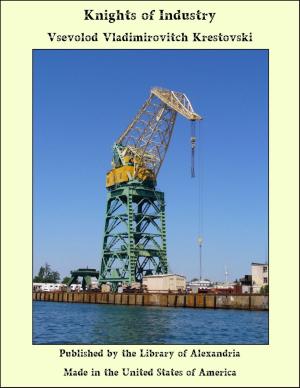Benjamin Franklin; Self-Revealed: A Biographical and Critical Study Based Mainly on His Own Writings (Complete)
Nonfiction, Religion & Spirituality, New Age, History, Fiction & Literature| Author: | Wiliam Cabell Bruce | ISBN: | 9781465538680 |
| Publisher: | Library of Alexandria | Publication: | March 8, 2015 |
| Imprint: | Language: | English |
| Author: | Wiliam Cabell Bruce |
| ISBN: | 9781465538680 |
| Publisher: | Library of Alexandria |
| Publication: | March 8, 2015 |
| Imprint: | |
| Language: | English |
In reading the life of Benjamin Franklin, the most lasting impressions left upon the mind are those of versatility and abundance. His varied genius lent itself without effort to the minutest details of such commonplace things as the heating and ventilation of rooms, the correction of smoky chimneys and naval architecture and economy. His severely practical turn of mind was disclosed even in the devices with which he is pictured in his old age as relieving the irksomeness of physical effort—the rolling press with which he copied his letters, the fan which he worked with his foot in warm weather as he sat reading, the artificial hand with which he reached the books on the upper shelves of his library. But, sober as Franklin's genius on this side was, it proved itself equal to some of the most exacting demands of physical science; and above all to the sublime task, which created such a world-wide stir, of reducing the wild and mysterious lightning of the heavens to captivity, and bringing it down in fluttering helplessness to the earth. It was a rare mind indeed which could give happy expression to homely maxims of plodding thrift, and yet entertain noble visions of universal philanthropy. The stretch between Franklin's weighty observations on Population, for instance, and the bright, graceful bagatelles, with which his pen occasionally trifled, was not a short one; but it was compassed by his intellect without the slightest evidence of halting facility. It is no exaggeration to say that this intellect was an organ lacking in no element of power except that which can be supplied by a profound spiritual insight and a kindling imagination alone. The Many-Sided Franklin, the title of the essay by Paul Leicester Ford, is a felicitous touch of description. The life, the mind, the character of the man were all manifold, composite, marked by spacious breadth and freedom. It is astonishing into how many different provinces his career can be divided.
In reading the life of Benjamin Franklin, the most lasting impressions left upon the mind are those of versatility and abundance. His varied genius lent itself without effort to the minutest details of such commonplace things as the heating and ventilation of rooms, the correction of smoky chimneys and naval architecture and economy. His severely practical turn of mind was disclosed even in the devices with which he is pictured in his old age as relieving the irksomeness of physical effort—the rolling press with which he copied his letters, the fan which he worked with his foot in warm weather as he sat reading, the artificial hand with which he reached the books on the upper shelves of his library. But, sober as Franklin's genius on this side was, it proved itself equal to some of the most exacting demands of physical science; and above all to the sublime task, which created such a world-wide stir, of reducing the wild and mysterious lightning of the heavens to captivity, and bringing it down in fluttering helplessness to the earth. It was a rare mind indeed which could give happy expression to homely maxims of plodding thrift, and yet entertain noble visions of universal philanthropy. The stretch between Franklin's weighty observations on Population, for instance, and the bright, graceful bagatelles, with which his pen occasionally trifled, was not a short one; but it was compassed by his intellect without the slightest evidence of halting facility. It is no exaggeration to say that this intellect was an organ lacking in no element of power except that which can be supplied by a profound spiritual insight and a kindling imagination alone. The Many-Sided Franklin, the title of the essay by Paul Leicester Ford, is a felicitous touch of description. The life, the mind, the character of the man were all manifold, composite, marked by spacious breadth and freedom. It is astonishing into how many different provinces his career can be divided.















